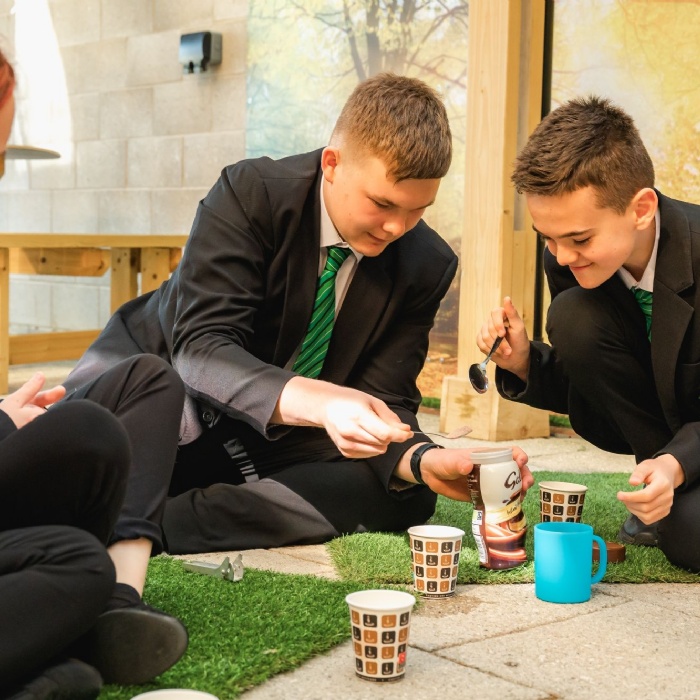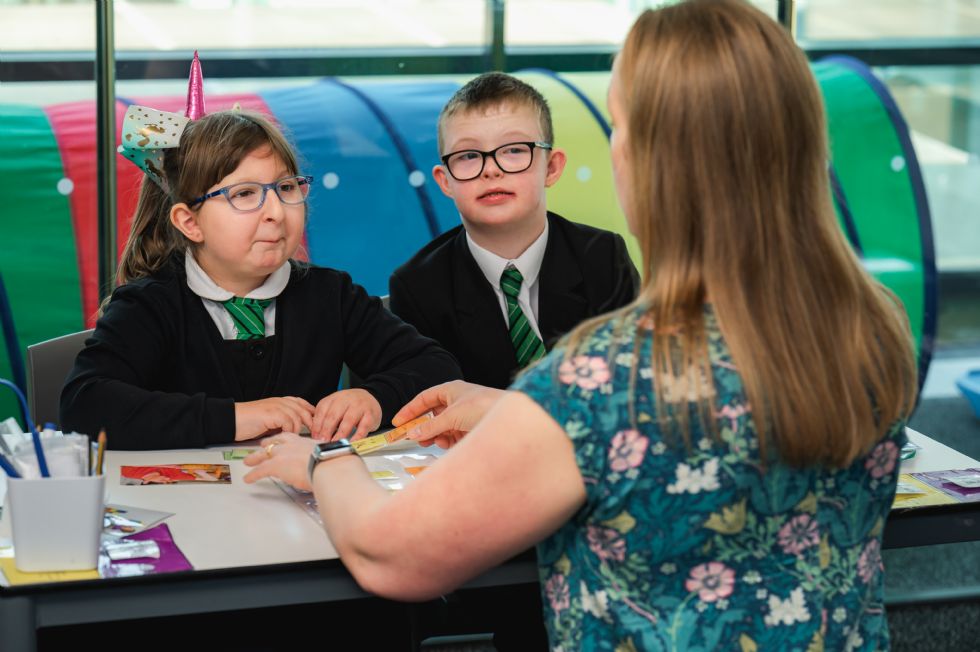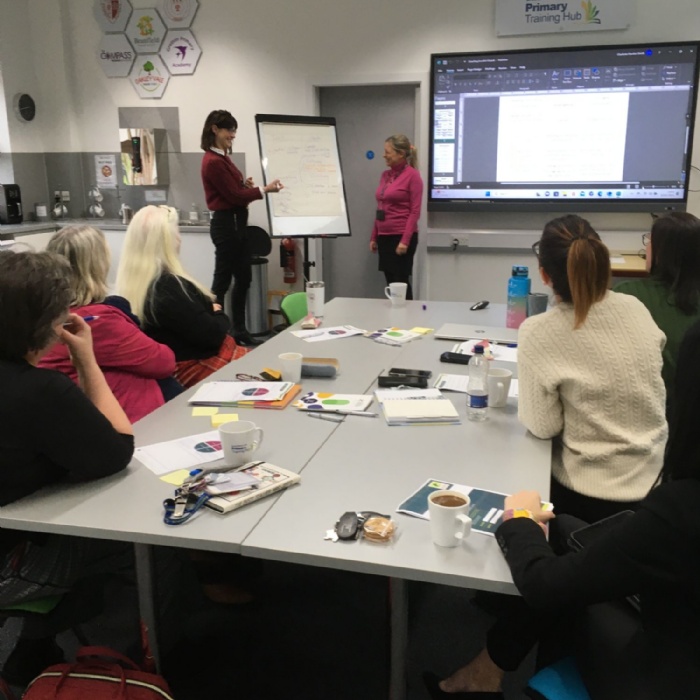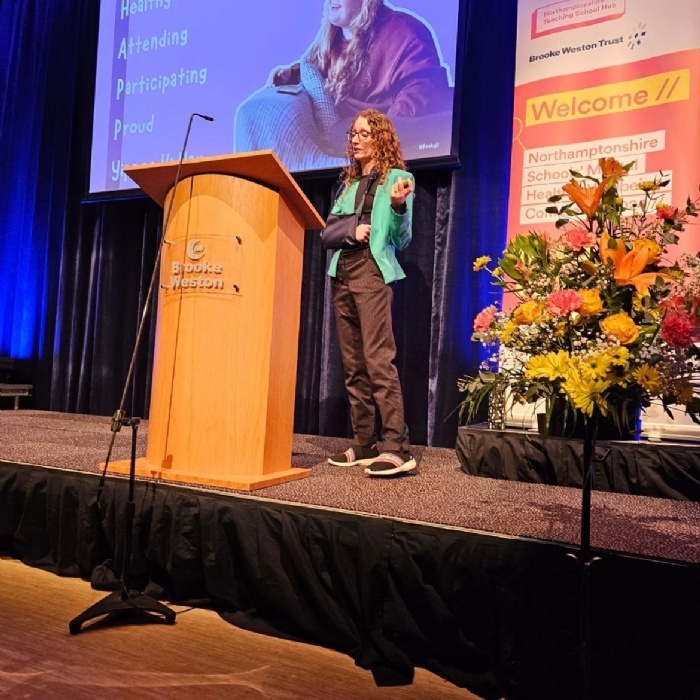Creating a provision that supports ‘Ambition For All’

At Brooke Weston Trust, one of our core focus areas is helping all pupils to achieve their full potential. As part of this, we are committed to developing an education service that provides equality of opportunity and high achievement for each and every one of our pupils.
Our specialist SEN unit provisions play an important role in delivering this commitment, providing education, support and facilities for over 100 children with Education, Health and Care (EHC) plans at both primary and secondary level.
Gemma Cushing Vice principal and manager of the Special provision, at Beanfield Primary School and Clare Robinson, Unit Manager at Corby Business Academy, have been involved in the successful running of our two unit provisions and we caught up with them to find out about how their important work promotes the Trust’s values of providing ambition for all.
How would you describe the unit provision?
Speaking about the purpose of the unit provision, Gemma said: “The Special provision at Beanfield Primary School offers up to 55 pupils aged between 4-11 years who have Severe Learning Disabilities (SLD) or Autistic Spectrum Disorder (ASD) a carefully structured bespoke teaching and learning plan alongside opportunities for inclusion into wider school life to support our high aspirations for all pupils to achieve, regardless of their starting points.”
Clare said: “Catering for over 75 pupils aged between 11-18, the unit provision at Corby Business Academy offers discrete and personalised care for young people with a range of learning difficulties including cognitive or communication impairment and autism. Many of our pupils who access this provision have complex needs, so it’s important that we offer small group sizes and specialist teaching, enabling them to thrive in an environment that’s inclusive and caring”.
How do you promote an inclusive culture across both the unit provision and the main school?
Both schools adapt the National Curriculum in terms of pace, level and delivery to ensure they meet the individual needs of the pupil, whilst keeping a focus on offering carefully structured access to the main school curriculum where appropriate. Gemma said: “Some of the work at the provision has to be independent from the main school to ensure we’re supporting the specific needs of our children. However, we have always tried to follow an inclusive culture throughout the whole school, allowing us to embed some of our practices alongside mainstream education.
“As part of this inclusivity, we ensure all our pupils at Beanfield have access to a broad, balanced, creative and relevant curriculum. Each of our unit provision classes has a link mainstream class and a link teacher. This allows our teaching staff within the unit to work alongside the main school staff on joint curriculum initiatives, training days and where possible, opportunities to involve main school pupils in aspects of life of the special provision.”
Claire added: “Due to the complexity of our pupils’ needs at secon dary level, it’s rare that they will go into mainstream lessons. However, we work closely alongside the main school to ensure our pupils feel integrated into academy life and have access to as many enrichment activities and whole academy curriculum days as possible. For example, we’ve started working collaboratively with our nurture groups at Key Stage 3 and as part of the Platinum Jubilee celebrations, we held a garden party outside where the Year 7 and 8 Nurture Groups joined us. Pupils also enjoyed a recent event Celebrating a 100 years of BBC storytelling and some of our KS3 children enjoyed a collaborative History trip with mainstream pupils. In addition, our Key Stage 4 pupils have been participating in work experience across different areas of the Academy.”
dary level, it’s rare that they will go into mainstream lessons. However, we work closely alongside the main school to ensure our pupils feel integrated into academy life and have access to as many enrichment activities and whole academy curriculum days as possible. For example, we’ve started working collaboratively with our nurture groups at Key Stage 3 and as part of the Platinum Jubilee celebrations, we held a garden party outside where the Year 7 and 8 Nurture Groups joined us. Pupils also enjoyed a recent event Celebrating a 100 years of BBC storytelling and some of our KS3 children enjoyed a collaborative History trip with mainstream pupils. In addition, our Key Stage 4 pupils have been participating in work experience across different areas of the Academy.”
How do you get parents involved with the provision?
One part of the unit provision that makes it an effective learning environment is through the establishment of strong and supportive partnership with the parents, ensuring that the voice of the child is heard and that they get the best out of their academic education. Gemma said: “Many of our children are non-verbal, so in order for us to be inclusive, we have to adapt our learning through the use of objects, symbols and the Picture Exchange Communication System (PECS). This means that even if a child cannot verbally speak, they’re still able to communicate their needs, ideas and opinions to us.
“In turn, this helps establish a successful partnership with our parents and carers as the more we can support our pupils to communicate, the more effectively we can provide feedback to parents on progress and attainment.”
Claire added: “As part of our strong focus on the personal development of pupils, it is important to us that we liaise with the parents too as their child moves through the key transitions. This includes close contact and communication so we have a shared understanding of how we can offer our parents support. For example, in lockdown we spoke to parents regularly, conducting weekly well-being check ins. We also have an annual review with parents to assess and discuss their child’s progress against the EHC plan and their academic targets. Working collaboratively with pupils and their parents, we aim to achieve a shared understanding ensuring the best outcomes and life chances for the pupil’s future."









